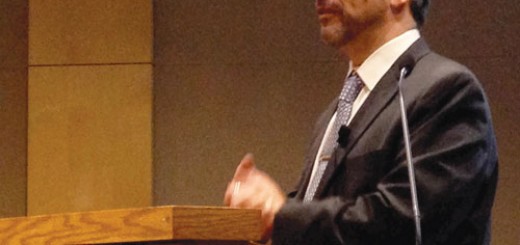Love letters to survivors to be displayed during Sexual Violence Awareness Month

By Cassie Weiss, Features Editor
On the anniversary of her assault in 2012, Tania Ikeda wrote, and posted on social media, a love letter to her past self. The letter was full of love and support and signed with the phrase, “This is my survivor love letter.” The letter pulled at heart strings of survivors and allies, inspiring those with their own stories to write their own survivor love letters.
Three years ago, Mount Royal University (MRU) and the Student Association of Mount Royal University (SAMRU) encouraged students and faculty to do the same. With the collection of letters starting on Valentine’s Day every year, the school showcases the #SurvivorLoveLetters throughout the month of May – Sexual Violence Awareness Month.
“While the world has shifted considerably in the past five years, attitudes and beliefs that blame survivors for dating, domestic and/or sexual violence (DDSV) and minimize, excuse and justify the behaviours of people who perpetrate this violence continue to be rampant,” said Cari Ionson, the Sexual Violence Response and Awareness Coordinator of the university.
“We continue to see social messaging throughout society that is more comfortable in judging a survivor’s actions around the abuse, over placing responsibility for the harm on the person who caused it.”
Ionson comments that survivors often get questioned about their clothing choices, alcohol consumption, or prior sexual behaviours. According to her, all these messages combine to create a significant amount of stigma around DDSV, which in turn silences survivors.
The letters can be written in any medium, but Ionson says it is not how the letters are presented, but how it inevitably impacts the people reading them.
“Through writing messages of support to survivors, this campaign seeks to counteract [all of the] negative messaging. The rates of DDSV continue to be incredibly high. Unfortunately, many MRU community members have also had DDSV perpetrated against them by someone else,” Ionson adds.
She says that the community showing their support reinforces the notion that survivors aren’t alone, and that they are deserving of support and the harm done was not their fault.
“For survivors who are perhaps writing themselves a love letter, it is also a celebration of self-love and a buffer against the pervasive harmful messaging. It also says to anyone who has caused harm or might cause harm, that this community stands against violence and abusive behaviours will not be tolerated.”
With examples from the past few years ranging from drawn pictures, photographs, poems and formal letters, Ionson is excited to see what is submitted this year.
When the initiative was originally introduced at MRU, there was a table visible on Main Street, where students could write a letter on the spot. With COVID-19 keeping us away from campus, there is even more need for love and support – both given and received – in every way possible.
The letters can be submitted through a form at www.mru.ca/survivorloveletter, and examples can be seen in the same place. Once the letters are received, they are reviewed by a student-led organizing committee, as well as by members of the SAMRU and MRU faculty.
People can also request a physical letter writing package – mailed to you and filled with craft and collage supplies to help get the creative juices going.
Ionson says that it is important to know that these letters don’t have to be shared – that it is perfectly okay for survivors, or anyone, to write a letter without submitting it. Letters can be submitted with a name, or anonymously and clubs, departments and faculties can also submit a letter collectively.
“There are many different roles students, staff and faculty can play when it comes to DDSV. We can all listen and empathize with each other. We can convey belief when someone discloses DDSV.”
There are also many actions people can take when it comes to familiarizing themselves with the topic of DDSV, including various workshops available at MRU and SAMRU and many resources are available that help direct people to the supports and services needed.
A faculty toolkit is also available on the mymru.ca website that provides more resources geared directly for use in class.
If anyone is looking for more information on DDSV prevention, or is looking for someone to talk to, resources are available online at mtroyal.ca/sexualviolence.
There is always hope, and these letters show exactly that.
As an anonymous letter sender signed #survivorloveletter had said, “You are not alone, and we believe you. Your story matters.”





